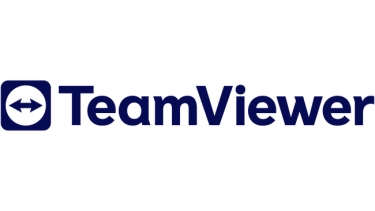New research shows that 33% of global businesses with excellent technology connectivity said their financial performance was among the leaders in their industry. Just 16% of businesses with good connectivity said the same. In addition, 56% of Asia-Pacific (APAC) businesses said that excellent technology connectivity gave them a competitive edge. TeamViewer, a leading global provider of remote connectivity and workplace digitalisation solutions, undertook global research conducted by FT Longitude to uncover ‘The Real Value of Technology Connectivity’.
Globally, 34% of businesses with excellent connectivity said their operational performance was on par with industry leaders, but only 19% of businesses with good connectivity said this was the case. Seamless connectivity, the extent to which staff can operate and connect without interruptions, and what all businesses should aim for also increases resilience and supports risk management. In particular, better connectivity helps organisations to withstand the growing threat of cyberattacks. 36% of APAC businesses with excellent connectivity, which are organisations one step below achieving seamless connectivity, were among the leaders in their sector for cybersecurity performance.
“It’s clear from the research that connectivity isn’t just about driving workforce productivity and efficiencies. The approach of shifting connectivity from a supporting role and cost centre to one that empowers the business has an impact on growth, and ultimately revenue. Fragmented systems blunt competitive advantage so just being good is not good enough when it comes to connectivity. Businesses need seamless integration and harmonization of data to fully realise the opportunities that technologies like augmented reality (AR) and artificial intelligence (AI) bring,” said Mei Dent, chief product and technology officer, TeamViewer.
The research found that only one in 20 businesses said their technology was seamless across their organisation. This means that 95% knew they still had some way to go to reach seamless connectivity.
The need to close this gap is clear to APAC organisations:
- 86% of respondents stated that the impact of seamless technology connectivity allows for better customer interactions and increases customer satisfaction
- 88% said it enabled better innovation
- 90% believed it allowed more time for considered decision-making
- 90% considered it an important aspect of working at their company for increasing talent retention.
What is holding organisations back globally?
Globally, organisations with gaps in connectivity (organisations that said they had good connectivity but not excellent or seamless) were more likely to be held back by differences between departments within the organisation (30%) and the inability to show the return-on-investment (ROI) of tech connectivity (27%). Meanwhile, organisations that had excellent connectivity were most likely to be held back by concerns about cybersecurity (24%). So, cybersecurity was both a benefit and a hindrance to better connectivity.
There was also a lack of trust in internal data in almost all organisations. The top reasons undermining trust in data were multiple versions of the truth within the company based on different data sets (38%), conflicting data management practices (32%), and too many instances of poor hardware reliability (31%).
Interestingly this mistrust of internal data varied across company size. It was more likely to be driven by lack of data literacy in smaller organisations. 40% of respondents working for companies generating US$10 million to US$49.99 million in yearly revenue reported a lack of data literacy among employees, compared to 21% of companies generating US$10 billion and above.
A company’s ability to connect to any device, application, and system in its infrastructure, and to make use of existing data, has an outsized influence on performance. Whether it is smarter logistics operations or remote technical guidance, access to knowledge from any device, at any time, helps people work smarter and reduces the mistrust that there are multiple versions of truth in data.
Dent continued, “There is a long way to go for companies to achieve seamless connectivity, but the benefits far outweigh the initial investment of time and resources. Doing nothing also has a cost. With many struggling with increased competition and a lack of skilled labour available, organisations need to do all they can to attract and retain the best talent. And one way to do this is to offer a working environment with integrated systems and connectivity that makes it a great place to work and thrive in their careers.”
About TeamViewer
TeamViewer is a leading global technology company that provides a connectivity platform to remotely access, control, manage, monitor, and repair devices of any kind – from laptops and mobile phones to industrial machines and robots. Although TeamViewer is free of charge for private use, it has around 640,000 subscribers and enables companies of all sizes and from all industries to digitalize their business-critical processes through seamless connectivity. Against the backdrop of global megatrends like device proliferation, automation, and new work, TeamViewer proactively shapes digital transformation and continuously innovates in the fields of augmented reality, Internet of Things, and artificial intelligence. Since the company’s foundation in 2005, TeamViewer’s software has been installed on more than 2.5 billion devices around the world. The company is headquartered in Goppingen, Germany, and employs more than 1,500 people globally. In 2023, TeamViewer achieved a revenue of around EUR 627 million. TeamViewer SE (TMV) is listed at Frankfurt Stock Exchange and belongs to the MDAX. Further information can be found at https://www.teamviewer.com/.










































